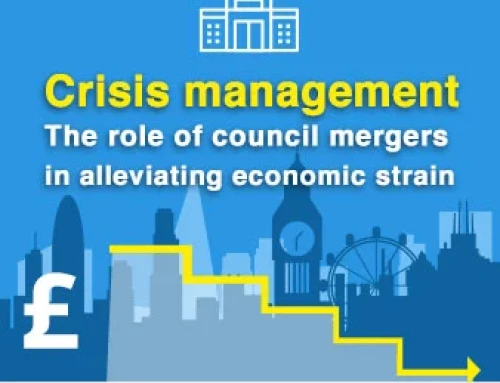How customer service plays a prominent role in crisis management?
Things to learn from Monarch and Ryanair crisis!
Failures are harsh. When a business misses the mark, it is quite painful for everyone associated with it. The owners, stakeholders and the employees have to face some real bad consequences. And, the loss is inescapable. Even the customers have a tough time in finding an alternative or the money, if involved. During such a crisis, a company would try its best to save itself as far as possible. But, it is terrible in all directions.
Some examples…
The recent cases of Monarch and Ryanair airlines have left people in shock. Monarch Airlines was one of the largest and oldest airlines in the UK. It’s been flying millions of passengers every year for more than 50 years till now. Monarch ceased its operations all of a sudden this October. And the news came as a big blow to the industry, the government and the people. The CAA (Civil Aviation Authority) started the biggest peacetime repatriation process to help 110,000 holidaymakers travelling across different locations. Furthermore, this collapse led to the cancellation of 300,000 future bookings involving 750,000 customers.
Now, the CAA will have to work round the clock to ensure they do the needful for the stranded passengers. This immediate crisis management process would add up to their routine workload. Tough times without a doubt! Ryanair is another airline facing a major pilot shortage crisis. They have cancelled 18,000 flights for the winter season. With 40-50 flights axed per day, it has affected 400,000 travellers. This crunch has put a question mark on their customer service and staff policies. Now, Ryanair has to be exceptionally good ahead to fill the gaps.
Some reasons…
There are many factors behind these crises. Poor management tops the chart. A lack of the futuristic view is another reason. After such a major fall, a company needs to be on their toes and make efforts to bounce back. In the case of Monarch though, the CAA has to take care of the customers. While for Ryanair, they have to get going at the earliest to streamline the operations.
A business should provide great customer service to make things better. It will get them a step closer to earn the reputation back. Though, it is no easy task. Here is our take on how customer service and technology can help in crisis management-
Customer Service
Ignoring customer concerns over a crisis is foolish. Good customer service can be a magnet to keep the business going in the worst times. Like for Ryanair, they’ll have a hard time to earn customer loyalty after a massive fall. They can’t just play it by ear. Apart from retaining their pilots and employees back, they need to focus on their customer service to jump the gun. Some of the learning points are-
Be Prepared for Outburst of Issues
A crisis means never-ending phone calls, emails, and messages. One cannot ascertain the pressure and workload on the employees in such a situation. There will be complaints and problems of all types. Motivate your customer support team to be effective in handling issues. Plan a strategy to address all concerns so that no issue gets missed. There will be the burden of regular and the crisis work. So, prepare your employees with efficient ‘problem-solving’ skills and spirit of teamwork. Because the show must go on!
Patience to deal with Over-Angry Customers
How does it feel to attend every single call that thrashes you out of nowhere? It’s terrible for the employees serving the annoyed customers. They may face complaints that have been never heard before, questions for which they don’t have answers ready, doubts that cannot be clarified immediately, etc. Therefore, during such big crises, employees need to be more patient, empathetic and understanding. They need to balance things and calm the fuming complaints with an assurance.
Take the Responsibility and Build the Rapport
Coordination is the word here. It’s difficult to regain the market position after a business undergoes a huge distress. But, it’s not impossible. Consider a long-term vision. Trust your employees and allow them to use their experience & creativity to manage their work. Give them necessary resources. The aim should be to go an extra mile in the present for a better future. To achieve that, build excellent internal engagement and deliver the exceptional external experience.
Technology
The impact of technology is seen in every business. It’s more about smart work with the modern tools and technology. For instance, if we talk about the CAA getting the added responsibility of managing Monarch customers, it’s better to take the tech route. Also, for Ryanair already facing a shortage of manpower, technology can be of help to avoid further mismanagement. Here are some ways technology can support a business for crisis management-
Take the Help of Automation
Automation is the game-changer. Advanced customer support platforms offer the capabilities to facilitate end-to-end service. This doesn’t mean replacing the manpower with the automated systems. Rather, including the solution eases and streamlines the work. Configure the processes like registration, refunds, and emails, web forms to collect issue information, reminders, and status updates with automation. This series of task automation will allow the employees to focus on more critical processes and dealing with people than doing repetitive work.
Self-Service to the Rescue
In our last post, we described the role of self-service apps in transforming CRM. Using self-service apps will reduce the number of direct calls. The customers can track all their information, latest updates and news by themselves. Also, seamless synchronisation with back-office support will ensure a timely solution. A company can send bulk and personalised updates and messages within seconds. The process of communication is leaner and hassle-free. It will also assure them that the company is making efforts to retain them.
Organise and Centralise Information
We have always cited the importance of data. All the information a business collects is an asset. During a crisis, a well-placed system can be helpful to organise the silos of information. This means, there are no missed customers, no misplaced chunks, no re-work or repetitive processes. Less redundancy means more accuracy with lesser efforts. Moreover, the ins and outs of the information can also determine the base for future decisions. Proper analysis will help to give a clear idea about process improvement.
What is your decision – Wait for a downfall or Act in advance?
It’s advisable to work with proper management, engaged employees, and advanced technology. Because, when a problem occurs, everyone tends to pass the buck. There’s a lot to learn from the Monarch failure and Ryanair’s mishandled operations. Their competitors like EasyJet, Lufthansa and others can make most out of this situation. Most of all, they can get a huge market share and extend their services. Again, they should also be careful not to repeat the mistakes. To take off with superior customer service and crisis management, employ a robust solution to support your employees and develop a better understanding of your business.





